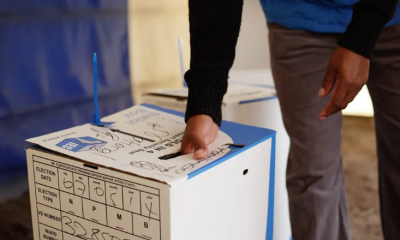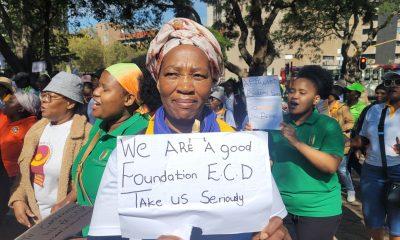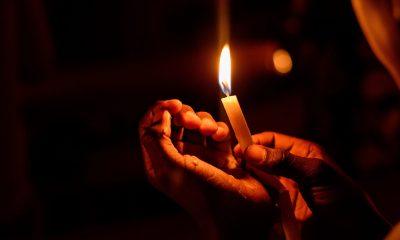News
Ballot Paper Selfie Scandal: 20 Arrested in Gauteng for Breaking Electoral Laws

Police in Gauteng have arrested at least 20 people in connection with election-related crimes, including taking ballot paper selfies, as law enforcement agents seek to maintain peace after the voting and throughout the collating of the votes.
On Wednesday night, IOL reported that the Electoral Commission of South Africa (IEC) was forced to rope in thousands of counting officers to help mitigate long queues at some voting stations. Late last night, there were snaking queues at metros in Gauteng, Western Cape, KwaZulu-Natal, and the Eastern Cape, which forced the commission to request counting officers, who were due to work later, to come in earlier.
A day after the voting process, Gauteng police provincial commissioner, Lieutenant General Tommy Mthombeni, said the number of people arrested for election-related crimes has increased to 20 since President Cyril Ramaphosa proclaimed the election date. “Indeed it was a little bit challenging in terms of ensuring that the communities are, and feel safe, but we were in a position to restore order. I can confirm that since our last update, the number of cases reported has indeed gone up, and currently, we are having 20 within the province,” Mthombeni said in an interview with the SABC.
Also read: Special Vote Applications Open for 2024 Elections
“Those suspects have been arrested.” He indicated that some people were arrested for taking pictures with their ballot papers, which is an offence. “You know that the voting process was under way recently, and some of the cases, for example, you find that a particular individual casts his vote, and after casting his vote, they then take a selfie with their ballot paper – which is prohibited.
On the eve of the election day, the Electoral Commission of South Africa reminded voters to avoid taking pictures of their marked ballot papers. “Voters are reminded that it is an offence to take and publish photographs that reveal a person’s vote on a ballot paper. The purpose of this law is to maintain the secrecy of your vote and the privacy of others. It is crucial to understand this regulation in the context of its purpose: to protect vulnerable voters from coercion.
In general, Mthombeni said the voting went well across Gauteng, and the men and women in blue managed to maintain peace. He said power outages posed another challenge on voting day, but the situation was controlled. As the election results were trickling in on Thursday morning, early indications showed that former president Jacob Zuma’s fledgling Umkhonto we Sizwe party was giving the ANC a bloody nose in the province of KwaZulu-Natal, standing a chance to reduce the ruling party’s majority, if not take the province.
Also read:
Picture: Facebook / Health Sciences University
Follow us on Google News.






















